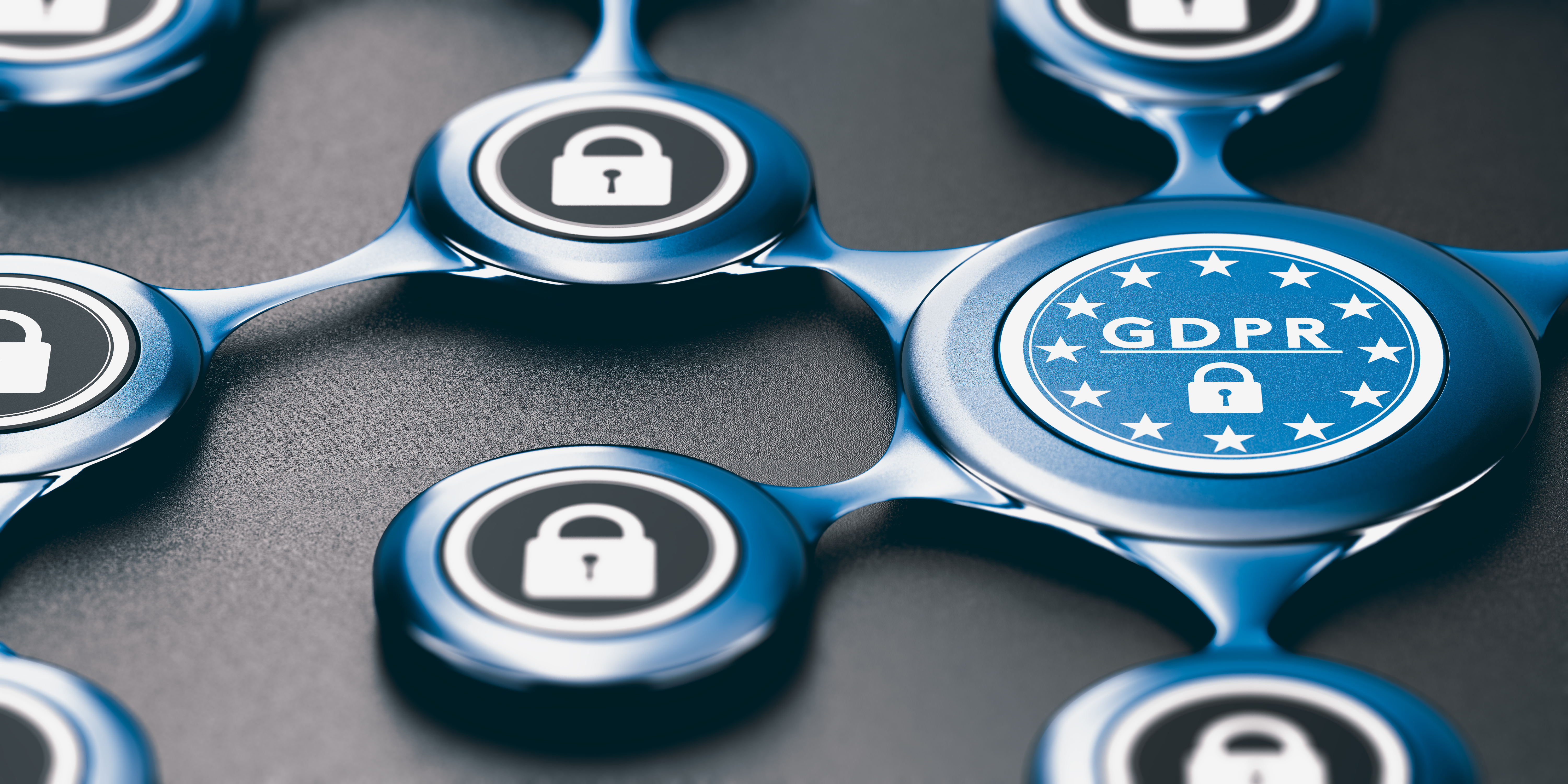How Can GDPR Prep Help with CCPA Compliance? Part III
As the landscape of data privacy evolves, businesses now face the growing challenge of CCPA compliance alongside the well-established GDPR. While GDPR became effective in May 2018, just one month later, California introduced its own privacy law, the California Consumer Privacy Act (CCPA), which went into effect on January 1, 2020. The CCPA grants Californian consumers a heightened level of data protection, with some provisions even going beyond those established by GDPR.
Privacy experts often draw comparisons between CCPA and GDPR because the CCPA shares several key principles with the EU regulation. However, it also introduces some unique provisions tailored to California residents. So, what do businesses need to know about the CCPA, and how does it compare to GDPR?

Key Rights Under CCPA
The CCPA gives California residents five critical rights regarding their personal data:
- Right to Know Consumers can find out what personal information is being collected about them.
- Right to Know Who It's Shared With They can learn whether their data is sold or disclosed and to which third parties.
- Right to Opt-Out Consumers have the right to say "no" to the sale of their personal information.
- Right to Access Californians can access the personal information businesses have collected about them.
- Right to Equal Treatment Even if a consumer exercises their privacy rights, they must still receive equal service and pricing.
What Counts as Personal Information Under CCPA?
The CCPA defines personal information much more broadly than California's other privacy laws. It includes any information that directly or indirectly identifies, describes, relates to, or is capable of being linked to a specific individual or household.
In essence, if a business collects, buys, or sells the personal data of 50,000 or more consumers, households, or devices annually, the CCPA applies.
Some specific categories of personal data included under the CCPA are:
- Identifiers: Name, alias, postal address, email address, IP address, social security number, etc.
- Personal Information: Signature, education, employment history, bank account details, medical information, etc.
- Protected Classifications: Data such as race, religion, gender, and sexual orientation (reference State Q&A, Anti-Discrimination Laws: California).
- Commercial Information: Records of personal property, purchase histories, and consumer tendencies.
- Biometric Data: Fingerprints, facial recognition, etc.
- Online Activity: Browsing history, search history, interactions with websites or ads
- Geolocation Data: Location information.
- Professional and Employment Information: Work-related details.
- Educational Data: Nonpublic <a href='/blog/pii-vs-personal-data-dpdp-act-india-data-classification-guide' style='color:#4b7b2c; text-decoration:underline'>Personal Data</a> under FERPA (20 U.S.C. § 1232g and 34 C.F.R. Part 99).
Another important category under CCPA includes inferences drawn from these data points. These are profiles that reflect an individual's preferences, psychological trends, behavior, and other personal characteristics, which businesses can use for targeted advertising or analytics.
GDPR vs. CCPA: A Quick Comparison
While the GDPR focuses heavily on giving consumers control over their data, the CCPA shares many similar goals but has some distinct differences. The GDPR aims to give individuals the power to decide how third parties can use their personal data, ensuring they can:
- Access the information held about them.
- Request changes or deletions.
- Consent to data processing or restrict how it's used.
- Monitor how their information is being processed.
CCPA, while similar in its consumer protections, emphasizes transparency about the collection and sale of personal information and grants consumers the right to opt-out of data selling—a key distinction that sets it apart from GDPR.
The comparison between the GDPR and CCPA for a few selective categories.
| Details | GDPR | CCPA |
|---|---|---|
| Law applies to | Data controllers and data processors: The data controller determines the purposes for which and how personal data is processed. The data processor processes personal data only on behalf of the controller. The data processor is usually a third party external to the companyEstablished in the EU that process personal data in the context of activities of the EU establishment, regardless of whether the data processing takes place within the EU.Not established in the EU that process EU data subjects' personal data in connection with offering goods or services in the EU or monitoring their behavior. | Any for-profit entity doing business in California, that meets one of the following: Has a gross revenue greater than $25 million.Annually buys, receives, sells, or shares the personal information of more than 50,000 consumers, households, or devices for commercial purposes. Derives 50 percent or more of its annual revenues from selling consumers' personal information. The law also applies to any entity that either: Controls or is controlled by a covered business.Shares common branding with a covered business, such as a shared name, service mark, or trademark. Parts of the CCPA apply specifically to: Service providers. |
| Protects | Data subjects, defined as identified or identifiable persons to which personal data relates. | Consumers, defined as California residents that are either: In California for other than a temporary or transitory purpose.Domiciled in California but are currently outside the State for a temporary or transitory purpose. Consumers includes, Customers of household goods and services, Employees, and Business-to-Business transactions. |
| Protected Information | Personal data is any information relating to an identified or identifiable data subject. The GDPR prohibits the processing of defined special categories of personal data unless a lawful justification for processing applies. Refer to an earlier post on GDPR covered data categories. | Personal information that identifies, relates to, describes, is capable of being associated with, or may reasonably be linked, directly or indirectly, with a particular consumer or household.The statutory definition includes a list of specific categories of personal information. Personal information does not include certain publicly available government records. The CCPA also excludes certain personal information covered by other sectors specific legislation from its coverage scope. |
| Security | The GDPR requires data controllers and data processors to take appropriate technical and organizational measures to ensure a level of security appropriate to the risk. | The CCPA does not directly impose data security requirements. However, it does establish a right of action for certain data breaches that result from violations of a business's duty to implement. |
Why This Matters for Your Business
For businesses handling customer data in California, it's essential to understand the scope of CCPA and how it overlaps with GDPR. Ensuring compliance with both regulations can be complex, but by implementing effective data privacy practices, businesses can avoid penalties and build stronger consumer trust. The CCPA and GDPR both prioritize consumer rights, but each has unique requirements, and staying compliant with both will likely be a crucial challenge as privacy laws continue to evolve.
In conclusion, as the data privacy landscape expands across the US and internationally, businesses must be prepared to adapt quickly to regulations like CCPA and GDPR. This isn't just about legal compliance—it's about building a reputation for respecting and protecting customer data in an increasingly privacy-conscious world.





GRC Insights That Matter
Exclusive updates on governance, risk, compliance, privacy, and audits — straight from industry experts.